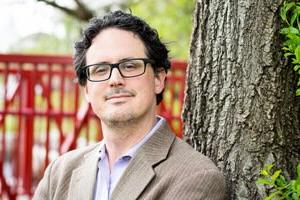
Position:
Coordinator of Music Theory; Professor, MusicLocation:
Ruebush Hall, Room 202Phone:
(540) 545-7331Email: ksalley@electronic-fittings.com
Employed Since:
2007Conservatory Professional Highlights:
Dr. Salley’s research interests include music theory pedagogy, linguistics, and music after 1900—including concert music, pop, and jazz.
His M.A. thesis, “Invariant Properties of Harmonic Substitution in Jazz,” investigates similarities of harmonic sound, structure, and connectivity that allow jazz musicians to substitute harmonies in improvisation, accompaniment, and composition. His dissertation, “Scriabin the Progressive,” deals with innovative aspects of the early piano works of Alexander Scriabin. His current research engages structural aspects of standard jazz repertoire, as well as aesthetics of pre- and post-war serialism.
Dr. Salley has shared his ideas at symposiums for music theory, music history, and music pedagogy in North America and Europe, including meetings of the Society for Music Theory, the American Musicological Society, Analytical Approaches to World Music, the International Association for the Study of Popular Music, the Dutch-Flemish Society for Music Theory, and the College Music Society. In 2008, he was a fellow at the Mannes Institute for Advanced Studies in Music Theory. His articles appear in Music Theory Online, Popular Music, The Journal of Music Theory Pedagogy, The Dutch Journal of Music Theory, The Journal of Jazz Studies, and College Music Symposium. He has chapters in the books Pop-Culture Pedagogy in the Music Classroom (Scarecrow Press, 2010) and Over and Over: Exploring Repetition in Popular Music (Bloomsbury Press).
Dr. Salley is on the editorial board of Gamut: Online Journal of the Music Theory Society of the Mid-Atlantic, and is also an editor for several issues of Engaging Students: Essays in Music Pedagogy.
Educational History:
B.M., The University of Memphis; M.A., Tulane University; Ph.D., The University of Oregon
Fields of Expertise:
Jazz Studies, Analysis of Twentieth-Century Music, Music Theory Pedagogy
Personal Quote:The purpose and goal of all music theory courses is to give students the ability to engage critically with music that is meaningful to them, so that they may understand the processes through which the meaning they perceive emerges.
Personal Highlights:
Before coming to the Shenandoah Conservatory, Keith Salley taught jazz guitar at The University of Memphis and Tulane University. His compositions were performed by Tony Reedus’s Frontiers Quartet, featuring John Patitucci, John Abercrombie, and Ravi Coltrane. He has played Jazz, R&B, Rock, Reggae, Country, Bluegrass, Irish Trad, and Celtic music professionally.